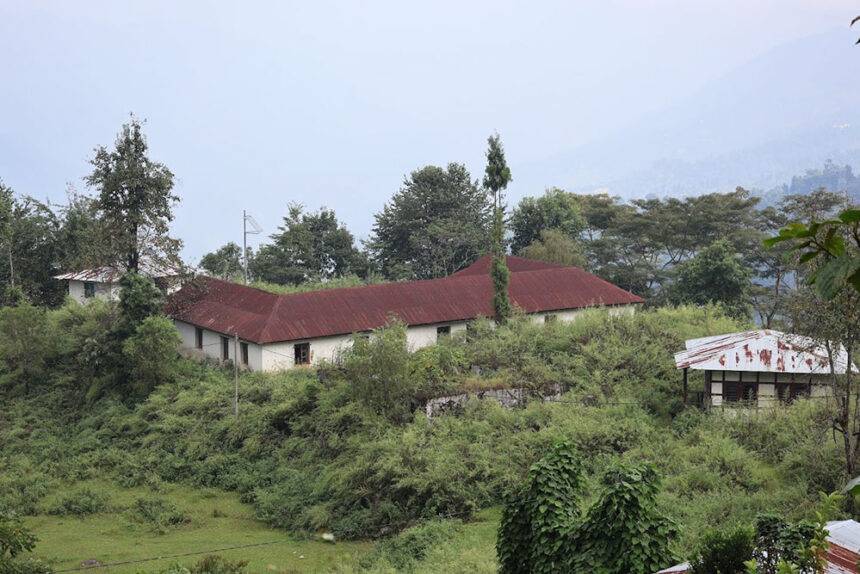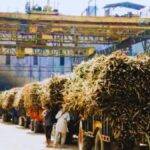Main Points In Hindi (मुख्य बातें – हिंदी में)
-
साबुन उत्पादन संयंत्र की स्थापना: डोगाक और बालेगैंग चिवोग के निवासी, डोगाक सामुदायिक स्कूल के पुराने ढांचे को पुनर्जीवित करके एक एलोवेरा साबुन उत्पादन संयंत्र स्थापित करने की योजना बना रहे हैं, जिससे स्थानीय अर्थव्यवस्था को बढ़ावा देने का लक्ष्य है।
-
सामुदायिक पहल: इस परियोजना का प्रस्ताव सामुदायिक सहभागिता मंच (सीईपी) की बैठक में पेश किया गया था, जहां 25 से अधिक प्रतिभागियों ने स्थानीय व्यापार के अवसरों की पहचान करने की दिशा में चर्चा की। यह पहल स्थानीय निवासियों के लिए स्थायी आय स्रोत उपलब्ध कराने की उम्मीद करती है।
-
यूरोपीय संघ का समर्थन: निवासियों ने स्थानीय शासन और आपदा प्रबंधन विभाग को एक प्रस्ताव प्रस्तुत किया है, जिसमें तकनीकी सहायता और तीन वर्षों के लिए प्रारंभिक वित्तीय सहायता की मांग की गई है। यह परियोजना एक सहकारी प्रयास के रूप में विकसित होने की योजना है।
-
आवश्यकता और समस्याएँ: पूर्व में किए गए प्रयासों, जैसे डेयरी खेती और मशरूम की खेती, युवाओं की कमी के कारण विफल रहे हैं। लेकिन नई साबुन उत्पादन पहल के प्रति उत्साह बढ़ाया गया है और इसे वैकल्पिक आय स्रोत प्रदान करने की उम्मीद है।
- व्यापार की संभावनाएं: प्रस्तावित साबुन संयंत्र जैविक खेती के प्रति भूटान की प्रतिबद्धता और प्राकृतिक उत्पादों की बढ़ती वैश्विक मांग का लाभ उठाने की योजना बना रहा है। प्रारंभिक चरण में खेती और उत्पादन की प्रक्रिया के बाद, ई-कॉमर्स और स्थानीय विक्रेताओं के साथ सहयोग करने की भी योजना है।
Main Points In English(मुख्य बातें – अंग्रेज़ी में)
Here are the main points from the provided text:
-
Aloe Vera Soap Production Initiative: The residents of Dogak and Baligang are starting an aloe vera soap production facility to revive the old infrastructure of the Dogak Community School in Degana, aiming to boost the local economy.
-
Background of the Community School: Established in 1977, the Dogak Community School was forced to shut down in 2017 due to a significant drop in student enrollment. Since its closure, the facilities have deteriorated and are now overgrown with bushes.
-
Community Engagement and Development: Recent community engagement meetings with over 25 participants discussed transforming the school site into an aloe vera soap plant. This idea emerged from years of community engagement activities aimed at identifying local business opportunities.
-
Technical and Financial Support: Residents have already submitted a proposal to the local governance and disaster management department (DLGDM) for technical assistance and initial funding of 1 million Nu for three years, intending to launch the soap plant as a cooperative effort.
- Focus on Youth and Sustainability: The initiative aims to provide alternative income sources for the community, particularly engaging women and youth in leadership roles, while leveraging Bhutan’s commitment to organic farming and the increasing global demand for natural products. The project will start with aloe vera farming and production, eventually expanding the product line.


Complete News In Hindi(पूरी खबर – हिंदी में)
वाईके पौडेल
डगाना – डोगाक और बालेगैंग चिवोग के निवासी, डेगाना में गोझी गेवोग जल्द ही डोगाक सामुदायिक स्कूल के पुराने, परित्यक्त बुनियादी ढांचे को पुनर्जीवित करके स्थानीय अर्थव्यवस्था को बढ़ावा देने के लिए एक एलोवेरा साबुन उत्पादन संयंत्र शुरू करेंगे।
1977 में स्थापित, डोगक कम्युनिटी स्कूल को 2017 में बंद करने के लिए मजबूर होना पड़ा क्योंकि छात्र नामांकन घटकर सात छात्रों तक रह गया था। तब से, परिसर को काफी हद तक जर्जर अवस्था में छोड़ दिया गया है, इसकी सुविधाएं – एक शैक्षणिक ब्लॉक, स्टाफ क्वार्टर, शौचालय और एक फुटबॉल मैदान – घनी झाड़ियों से घिरी हुई हैं।
हाल ही में हुई सामुदायिक सहभागिता मंच (सीईपी) बैठक के दौरान, जिसमें 25 से अधिक प्रतिभागियों ने भाग लिया, डोगक और बैलीगैंग के लोगों ने साइट को एलोवेरा साबुन उत्पादन के लिए एक संयंत्र में बदलने के प्रस्ताव पर चर्चा की।
यह विचार स्थानीय व्यापार अवसरों की पहचान करने के उद्देश्य से वर्षों की सीईपी गतिविधियों से उभरा। इस नई पहल से समुदाय को पुनर्जीवित करने और स्थानीय निवासियों के लिए एक स्थायी आय स्रोत प्रदान करने की उम्मीद है।
क्षेत्र आधारित संभावित कार्यक्रम पर यूरोपीय संघ स्थानीय शासन सहायता परियोजना के एक भाग के रूप में निवासियों ने पहले ही स्थानीय शासन और आपदा प्रबंधन विभाग (डीएलजीडीएम) को एक प्रस्ताव प्रस्तुत कर दिया है। तकनीकी सहायता के साथ-साथ तीन वर्षों के लिए 1 मिलियन एनयू की प्रारंभिक वित्तीय सहायता मांगी गई है। इसका उद्देश्य साबुन संयंत्र को दोनों चिवोगों को शामिल करते हुए एक सहकारी प्रयास के रूप में लॉन्च करना है।
गोझी गुप किंजंग टोबगे ने कहा कि हालांकि क्षेत्र में डेयरी फार्मिंग और मशरूम की खेती स्थापित करने के पिछले प्रयास युवाओं की भागीदारी की कमी के कारण विफल रहे थे, लेकिन नई साबुन उत्पादन पहल ने उत्साह बढ़ाया है। “हमें उम्मीद है कि यह परियोजना समुदाय को वैकल्पिक आय स्रोत प्रदान करेगी।”
स्कूल को भू-स्वामित्व रहते हुए गेवॉग प्रशासन को सौंप दिया गया था थ्राम शिक्षा एवं कौशल विकास मंत्रालय के अधीन है।
उन्होंने कहा, “मौजूदा सड़क कनेक्टिविटी और तैयार बाजार इस परियोजना के लिए एक बोनस है।”
गोझी मंगमी संगे वांग्मो ने सीईपी की भूमिका पर प्रकाश डाला, जिसने 2018 से नौ सामुदायिक समूहों के गठन को बढ़ावा दिया है।
इन समूहों ने विभिन्न स्थानीय पहलों पर ध्यान केंद्रित किया है, जिनमें कृषि सड़क रखरखाव, कृषि और पशुधन उत्पादन, सिंचाई और पेयजल आपूर्ति, महिला समूह प्रोत्साहन कार्यक्रम और जल आपूर्ति वृद्धि शामिल हैं।
उन्होंने कहा कि यह सहायता किसानों के लिए मौजूदा संसाधनों का पुन: उपयोग करने और स्थानीय अर्थव्यवस्था को बढ़ाने के लिए एक बड़ा प्रोत्साहन है। “हम गेवोग में महिलाओं और युवाओं को इस परियोजना का नेतृत्व करने के लिए प्रोत्साहित करते हैं।”
प्रस्तावित एलोवेरा साबुन संयंत्र दो प्रमुख रुझानों का लाभ उठाएगा: जैविक खेती के लिए भूटान की प्रतिबद्धता और प्राकृतिक, पर्यावरण-अनुकूल उत्पादों की बढ़ती वैश्विक मांग।
परियोजना प्रस्ताव के अनुसार, परियोजना एलोवेरा की खेती और साबुन के उत्पादन पर केंद्रित पायलट चरण के साथ शुरू होगी। एक बार यह चरण सफलतापूर्वक पूरा हो जाने के बाद, उत्पाद श्रृंखला में विविधता लाने की योजना है।
परियोजना के प्रारंभिक चरण में ब्लेंडर, साबुन बनाने वाली मशीन, मिक्सिंग टैंक और सुरक्षा गियर जैसे उपकरणों में निवेश की आवश्यकता होगी। एक बार आवश्यक अनुमोदन और प्रक्रियाएं पूरी हो जाने के बाद, समुदाय भूमि की तैयारी, एलोवेरा की खेती और उत्पादन मशीनरी की स्थापना शुरू कर देगा।
जैसे-जैसे उद्यम बढ़ता है, साबुन बेचने के लिए एक ई-कॉमर्स प्लेटफॉर्म स्थापित करने के साथ-साथ पहुंच बढ़ाने के लिए स्थानीय खुदरा विक्रेताओं, होटलों, स्मारिका दुकानों, स्वास्थ्य दुकानों, फार्मेसियों और सुपरमार्केट के साथ सहयोग करने की भी योजना है।
Complete News In English(पूरी खबर – अंग्रेज़ी में)
Y.K. Paudel
Residents of Dogak and Balegang Chivog, Dagana, will soon set up an aloe vera soap production facility by revitalizing the old, abandoned infrastructure of the Dogak Community School to boost the local economy.
Established in 1977, Dogak Community School was forced to close in 2017 due to a significant drop in student enrollment, which fell to just seven students. Since then, the school grounds, including an academic block, staff quarters, toilets, and a football field, have fallen into disrepair and are surrounded by thick bushes.
During a recent Community Engagement Platform (CEP) meeting with over 25 participants, locals from Dogak and Balegang discussed the proposal to transform the site into an aloe vera soap production plant.
This idea came from years of CEP activities aiming to identify local business opportunities. The new initiative hopes to rejuvenate the community and provide a sustainable source of income for residents.
As part of a potential area-based program under the European Union’s Local Governance Support Project, residents have already submitted a proposal to the Local Governance and Disaster Management Department (DLGDM) seeking technical assistance and an initial funding of 1 million NPR for three years. The goal is to launch the soap plant as a cooperative effort involving both Chivogs.
Gozhi Gup Kinjang Tobgay mentioned that while previous attempts to establish dairy farming and mushroom cultivation failed due to a lack of youth participation, the new soap production initiative has generated enthusiasm. “We hope this project will provide an alternative source of income for the community.”
The school’s land still belongs to Gewog authorities, and it falls under the Ministry of Education and Skills Development.
He added, “The existing road connectivity and ready market will be a bonus for this project.”
Gozhi Mangmi Sangye Wangmo highlighted CEP’s role in promoting the formation of nine community groups since 2018.
These groups are focused on various local initiatives, including agricultural road maintenance, crop and livestock production, irrigation, drinking water supply, women’s group promotion, and water supply improvement.
He mentioned that this support greatly encourages farmers to utilize existing resources and boost the local economy. “We encourage women and youth in Gewog to lead this project.”
The proposed aloe vera soap plant will capitalize on two major trends: Bhutan’s commitment to organic farming and the growing global demand for natural, eco-friendly products.
According to the project proposal, it will start with a pilot phase focused on aloe vera farming and soap production. Once this phase is successful, there are plans to diversify the product range.
In the initial phase of the project, investments will be needed in equipment such as blenders, soap-making machines, mixing tanks, and safety gear. Once all necessary approvals and procedures are completed, the community will begin land preparation, aloe vera farming, and the installation of production machinery.
As the venture grows, there are plans to establish an e-commerce platform for selling soap and to collaborate with local retailers, hotels, souvenir shops, health stores, pharmacies, and supermarkets to increase reach.




